Jessie Evans was born in 1918 in Mountain Ash. In 1952 she made her movie debut in “Stop the Merry-Go-Round”. Other films include “The Extra Day”, “Doctor in Distress”, and “Countess Dracula” in 1971. She died in 1983 at the age of 64.
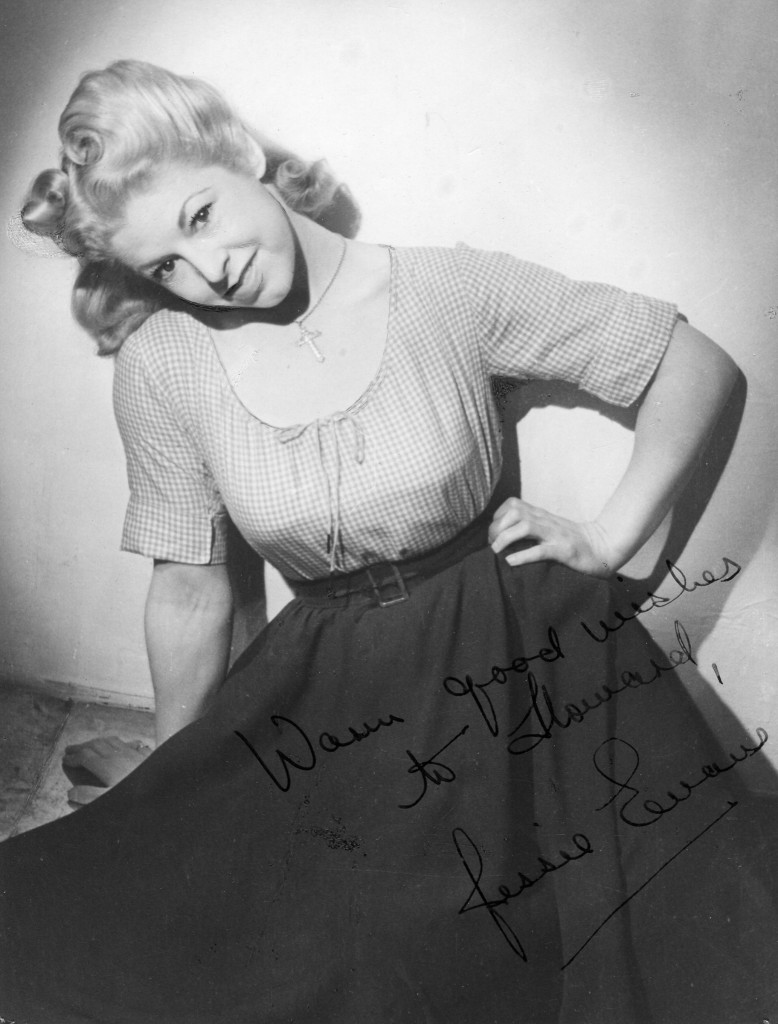

Brittish Actors
Jessie Evans was born in 1918 in Mountain Ash. In 1952 she made her movie debut in “Stop the Merry-Go-Round”. Other films include “The Extra Day”, “Doctor in Distress”, and “Countess Dracula” in 1971. She died in 1983 at the age of 64.

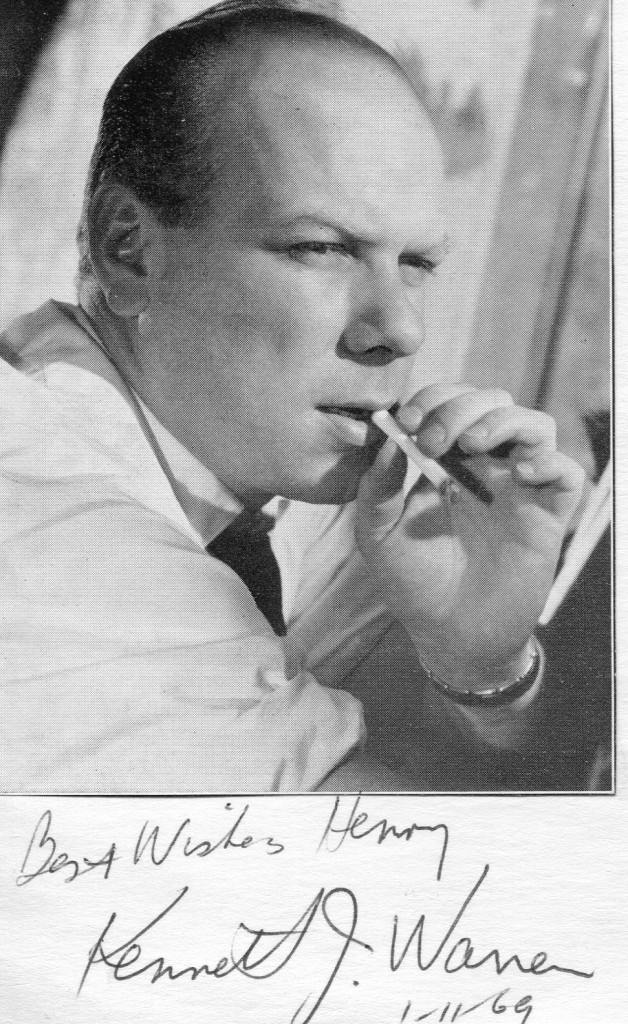
Kenneth J. Warren was born in 1929 in New South Wales, Australia. Most of his acting career was based in the U.K. His film debut was in 1954 in “Long John Silver”. His other films include “I Was Monty’s Double” in 1958, “The Navy Lark” and “Doctor Blood’s Coffin”. He died in 1973.
Gary Brumburgh’s entry:
Balding (later shaven-headed) Australian character actor Kenneth J. Warren (the “J” stands for John) was a reliable performer on both stage and films, his imposing, beefy frame and darting, sliver-eyed presence almost a tell-tale sign of peril yet to come. Born in New South Wales in 1929 (some sources indicate 1926), he was best known for his sinister heavies yet was quite comfortable playing moral-minded men. He began his theatrical career in his native Australia during the early 1950s and also found an obscure film part to play in the Robert Newton classic of – Treasure Island (1950). Catching fire after appearing on the London stage with a superb performance in an Australian touring production of “Summer of the Seventeenth Doll,” he made a major career move by settling in England. A wise choice in the end for his film career started up almost immediately with able supports in Hell, Heaven or Hoboken (1958) starring John Mills,Concrete Jungle (1960) with Stanley Baker, _Informers, The (1964)_ with Nigel Patrick, and A High Wind in Jamaica (1965) opposite Anthony Quinn and James Coburn.
Billed early in the game as Kenneth Warren (without the middle initial), the actor returned to the stage from time to time in such plays as “Luther” (1963) and “Canterbury Tales” (1968). On TV he was a worthy antagonist in a number of popular spy series such as “The Avengers,” “Secret Agent” and “The Saint.” An emphatic presence in horror films, his gallery of films in this genre included _Dr. Blood’s Coffin (1961)_, I, Monster (1971),Demons of the Mind (1972) and The Creeping Flesh (1973). One of Warren’s final roles came in another typical form, that of a military hi-ranker, in the comedy Digby, the Biggest Dog in the World (1973). His untimely death in 1973 robbed the acting community of a vital character support. His film S*P*Y*S (1974), which reunited M*A*S*H cohorts Elliott Gould and Donald Sutherland, was released posthumously. In his private life, Warren belied his on-camera tough-guy image as he was a talented artist and gourmet cook. His son Damian Warren is also an actor.
– IMDb Mini Biography By: Gary Brumburgh / gr-home@pacbell.ne
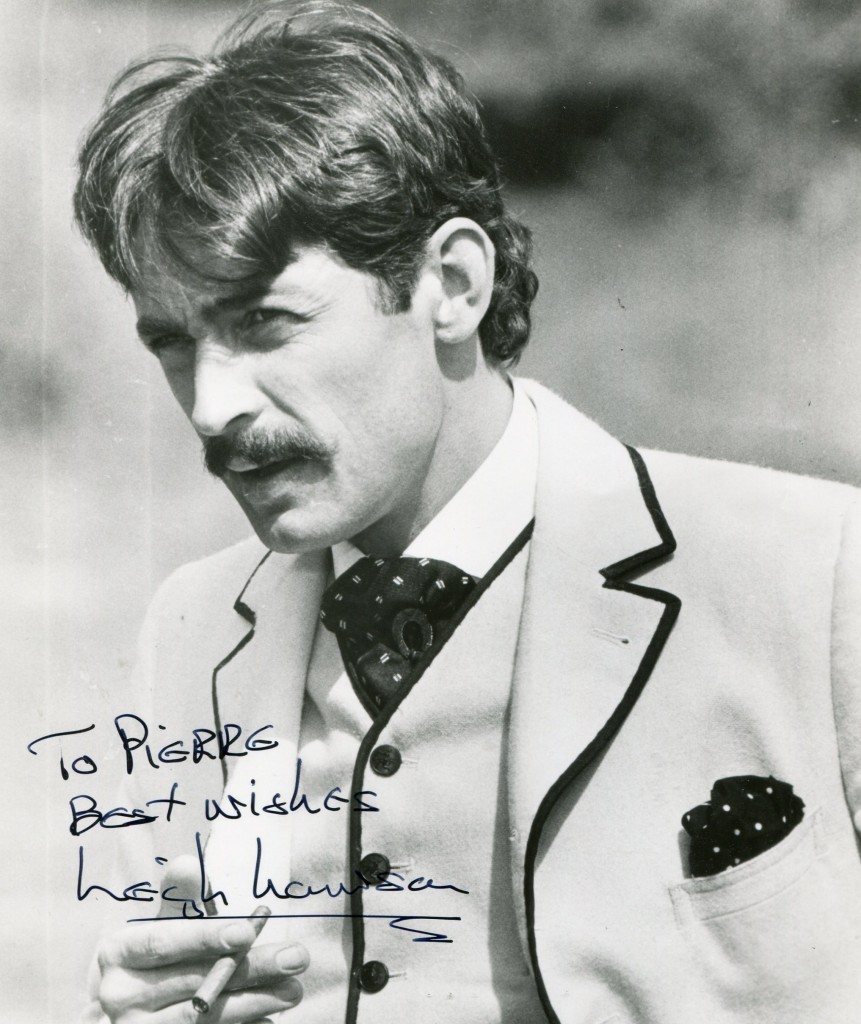
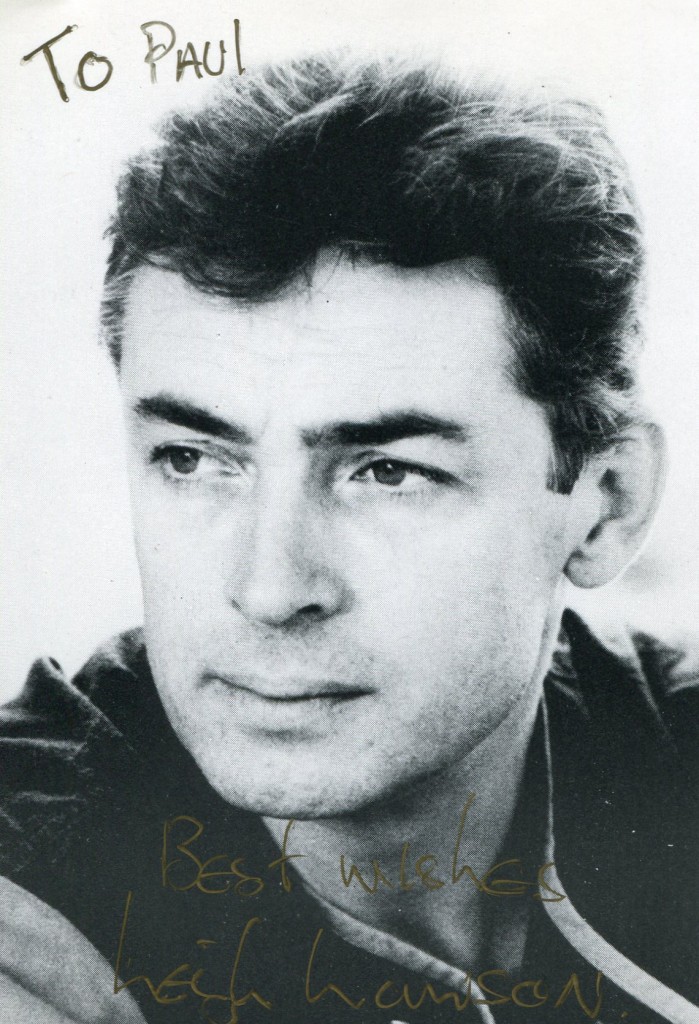
Leigh Lawson was born in 1945 in Warwickshire. He trained at RADA and first made an impact in Franco Zefferelli’s “Brother Sun, Sister Moon” in 1972. Other films include “Love Among the Ruins”, “Tess” in 1979 and “Being Julia”. He is the long term partner of Twiggy.
“Wikipedia” entry:
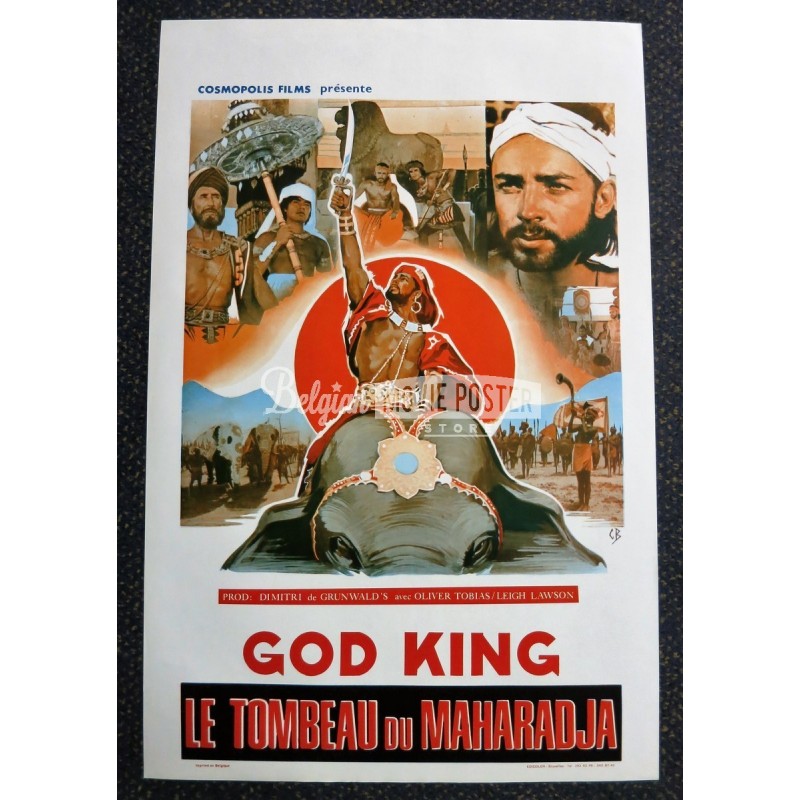
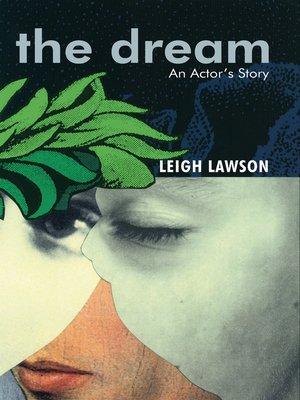
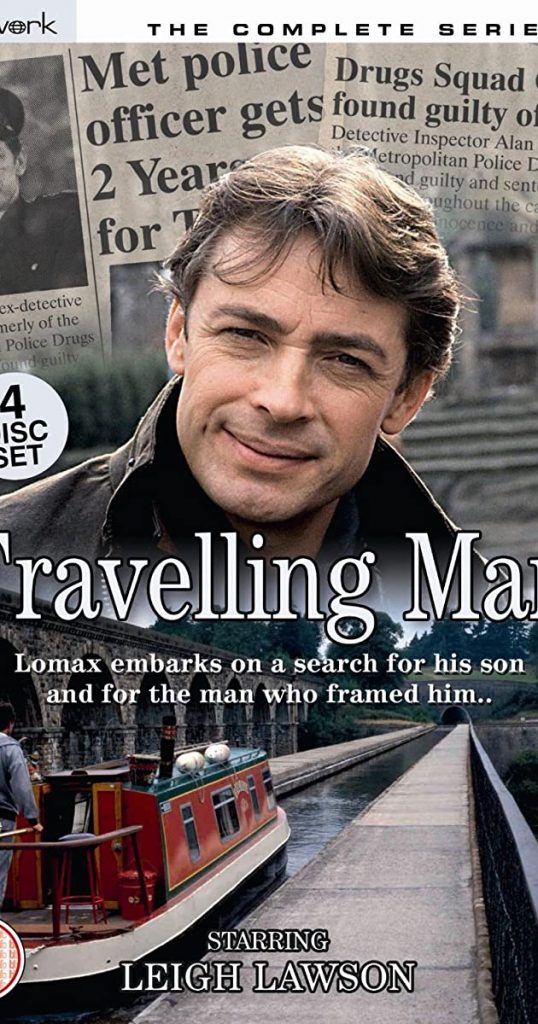
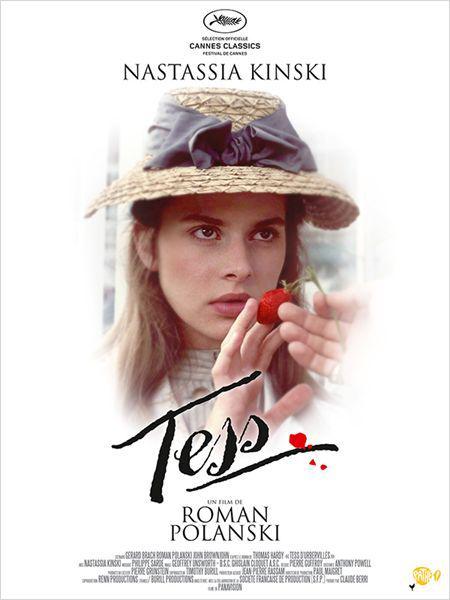
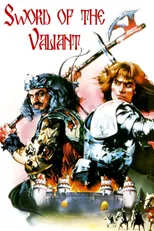
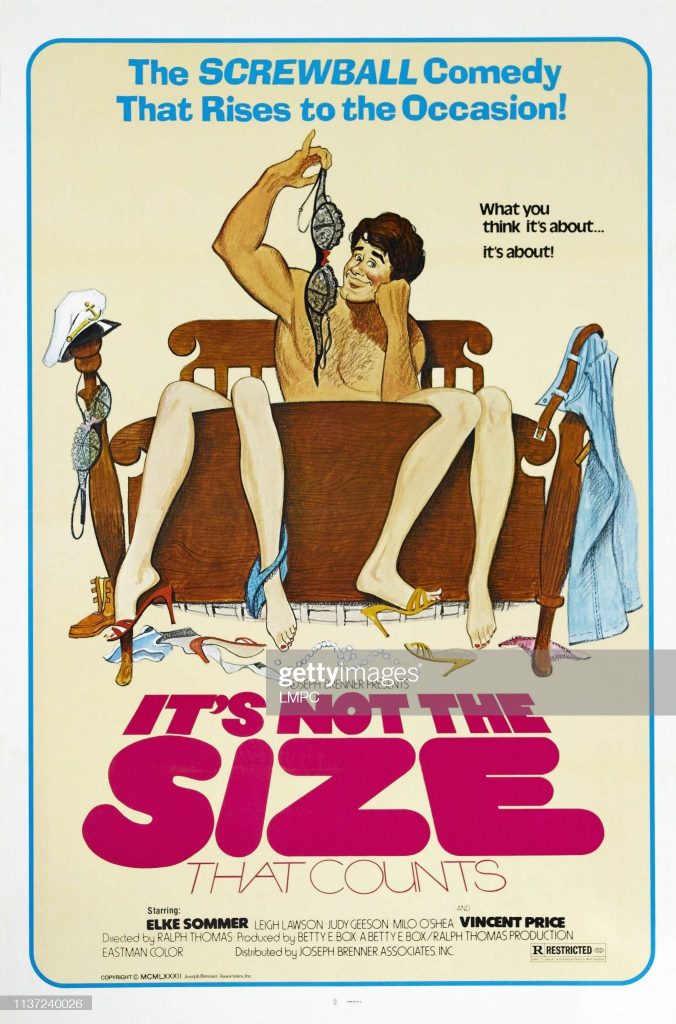
Leigh Lawson was born in Atherstone, Warwickshire. His mother was Jewish but was not practicing. He initially studied at Mountview Academy of Theatre Arts before training further at the Royal Academy of Dramatic Art, Lawson has acted in film and television since the early 1970s, and has directed plays in the West End and on Broadway. He has worked with the National Theatre, Royal Shakespeare Company (RSC) and with film directors such as Roman Polanski and Franco Zeffirelli.
He has been quoted as saying that the only time in his career when he didn’t feel he should be somewhere else doing something else was when he was with the RSC. Lawson’s portrayals in films include Bernardo in Brother Sun, Sister Moon (1972) and Alec d’Urberville in Tess (1979). He played the leading role as Alan Lomax in the television drama series Travelling Man (1984–85), and guest starred in television series such as The Duchess of Duke Street (1976), Disraeli (1978), Feuer und Schwert – Die Legende von Tristan und Isolde (1982), The Ray Bradbury Theatre (1988) and Silent Witness (2005–2007). He also guested, with his wife Twiggy, playing themselves in an episode of the comedy series, Absolutely Fabulous(2001). In 1999 Lawson co-wrote and directed the musical If Love Were All, which tells of the friendship between Gertrude Lawrence and Noël Coward. The Dream: An Actor’s Story, a theatrical memoir about the day-to-day life of a working actor, was published in September 2009. (ISBN 978-1-84002-867-6)
In 1976, Lawson and his first wife, Mondy, were divorced. He met actress Hayley Mills in 1975 when they performed in London’s West End in A Touch of Spring; and the following year, they had a son, Jason. Lawson also became stepfather to Crispian Mills, Hayley’s son with director Roy Boulting. During that time, he appeared alongside Hayley’s father Sir John Mills in the film The Devil’s Advocate (1977). The Lawson-Mills liaison ended in the early 1980s. He met model Twiggy in 1984. In 1988, they both worked in the film Madame Sousatzka and were married on 23 September that year in Tony Walton‘s back yard in Sag Harbor,Long Island.[5] The couple reside in West London, where Lawson looks after his wife’s business affairs and her involvement with Littlewoods catalogue. Lawson and Twiggy also own a home in Southwold, Suffolk.
The above “Wikipedia” entry can also be accessed online here.
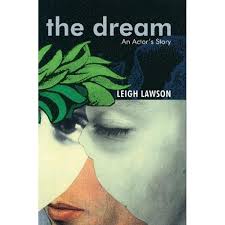
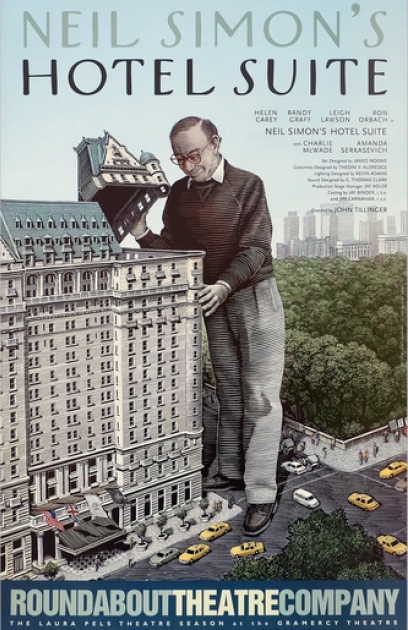

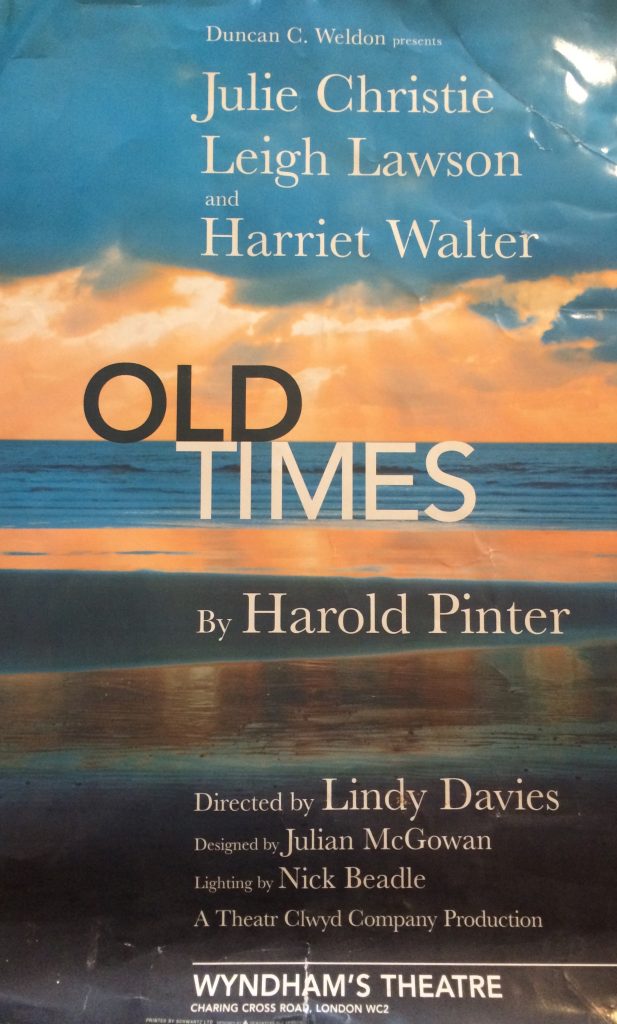

The longevity of Gwen Ffrangcon Davies was remarkable. She was born in 1891 and began her acting career in 1911 on the stage.Her film career was not extensive and her movie debut was in 1936 in “Tudor Rose”. Her other films included “The Witches” in 1966 with Joan Fontaine and “The Devil Rides Out”. She died at the age of 101 in 1992.
“Wikipedia” entry:
Dame Gwen Lucy Ffrangcon-Davies, DBE (25 January 1891 – 27 January 1992) was a British actress and centenarian. She was born in London of a Welsh family; the name “Ffrangcon” originates from a valley in Snowdonia.
She made her stage debut in 1911, as a singer as well as an actress, and received encouragement in her career from Ellen Terry. In 1924, she played Juliet opposite John Gielgud as Romeo, and Gielgud was grateful to her for the rest of his life for the kindness she showed him, casting her as Queen Anne in Richard of Bordeaux in 1934. n 1938, she appeared with Ivor Novello in a production of Henry V at Drury Lane. Later the same year she appeared as Mrs Manningham in the first production of Gas Light byPatrick Hamilton. She played Lady Macbeth for almost an entire year in 1942 opposite John Gielgud‘s Macbeth. She won the Evening Standard Award in 1958 for her performance as Mary Tyrone in Long Day’s Journey Into Night.
She retired from the stage in 1970, but continued to appear on radio and television. In the 1980s, well into her 90s, she appeared on the Wogan chat show, in which she recited, word for word, the famous death scene of Juliet. She made her final acting appearance in a teleplay of the Sherlock Holmes mystery The Master Blackmailer at the age of 100. Her films included The Witches (1966) and The Devil Rides Out (1968), both for Hammer Films. She lived for many years in the village of Stambourne, Essex.
The above “Wikipedia” entry can also be accessed online here.

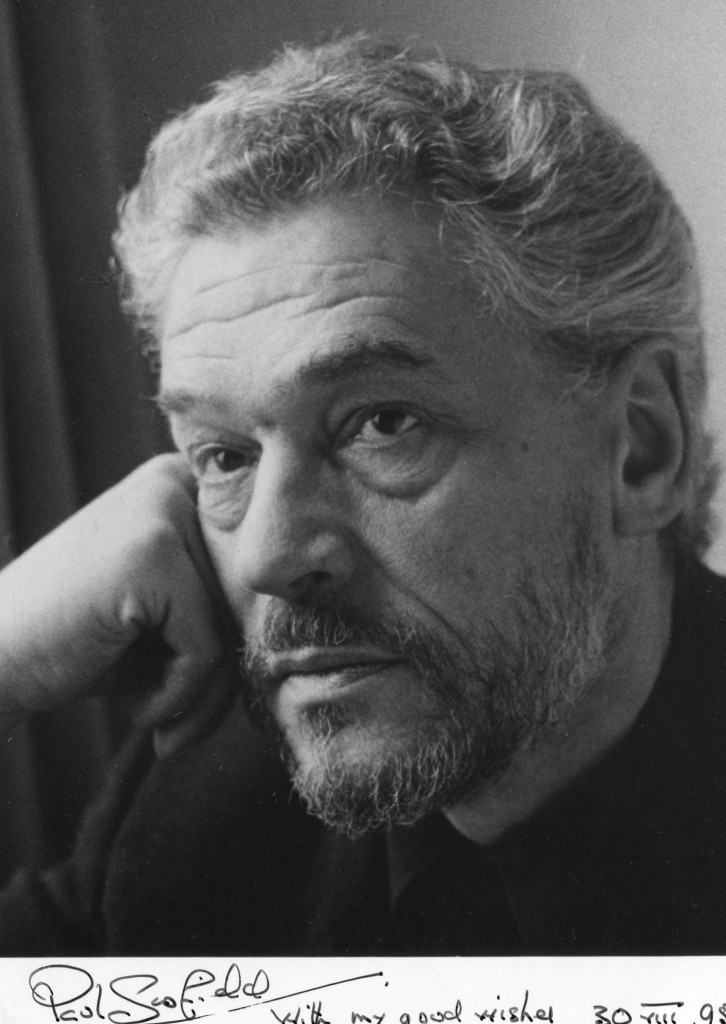
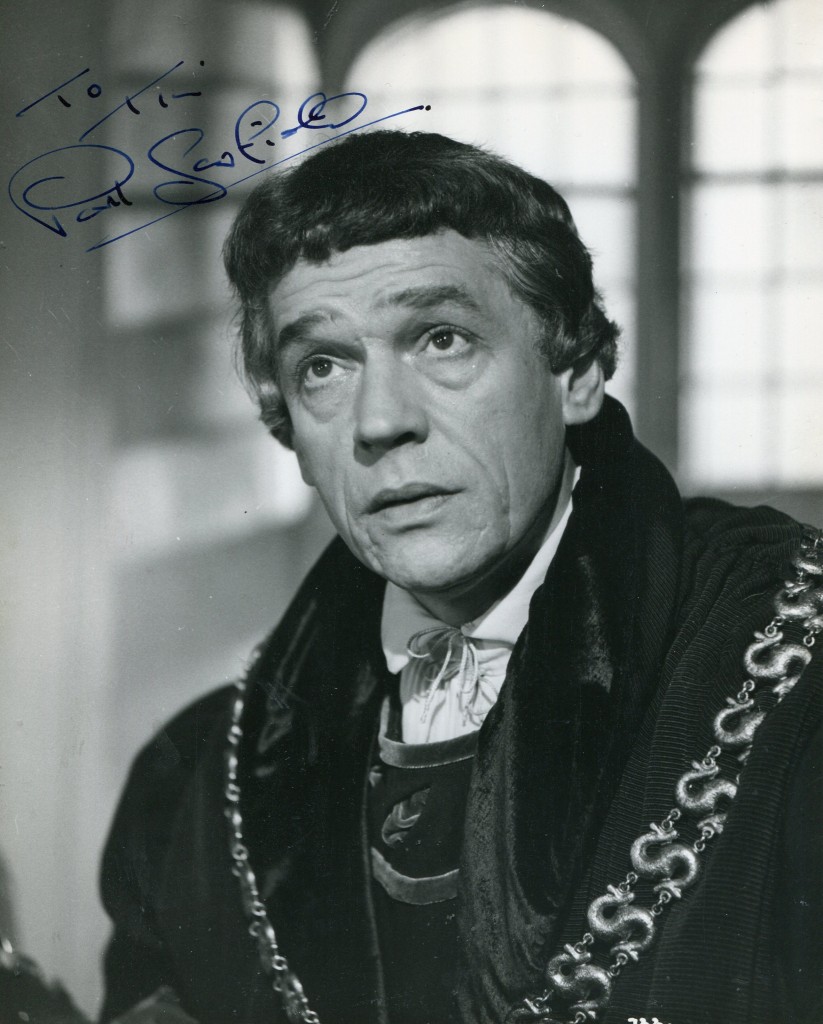
Paul Scofield was born in 1922 in Birmingham. A very gifted actor he had a preference for the stage so that his film performances are few but they are choice. He made his film debut in 1955 in an adaptation of Kate O’Brien’s novel “That Lady” opposite Olivia de Havilland. In 1958 he starred with Virginia McKenna in the very popular film “Carve Her Name with Pride”. In 1966 he won an Oscar for his magnificent performance as St Thomas More in “A Man for All Seasons”. In the United States he made two films “Quiz Show” and “The Crucible” with Daniel Day-Lewis. Paul Scofield died in 2008.
“Guardian” obituary:
On stage, the actor Paul Scofield, who has died aged 86, was braver than a lion. Off stage this genial man kept his private life quiet as a mouse. This might have made him a frustrating and disappointing subject for interviewers and biographers, but it ensured he was always celebrated for his talent never just as a celebrity. It is almost impossible to think of an actor for whom the term “luvvie” would be more inappropriate.



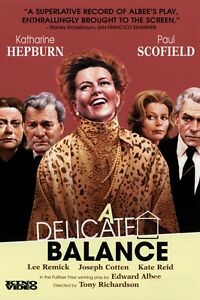


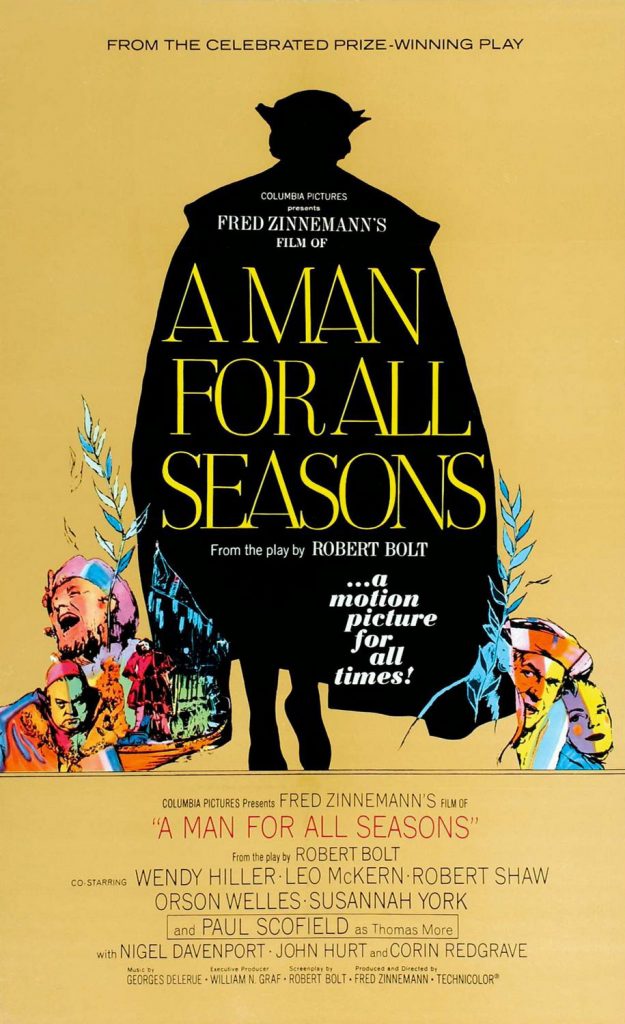
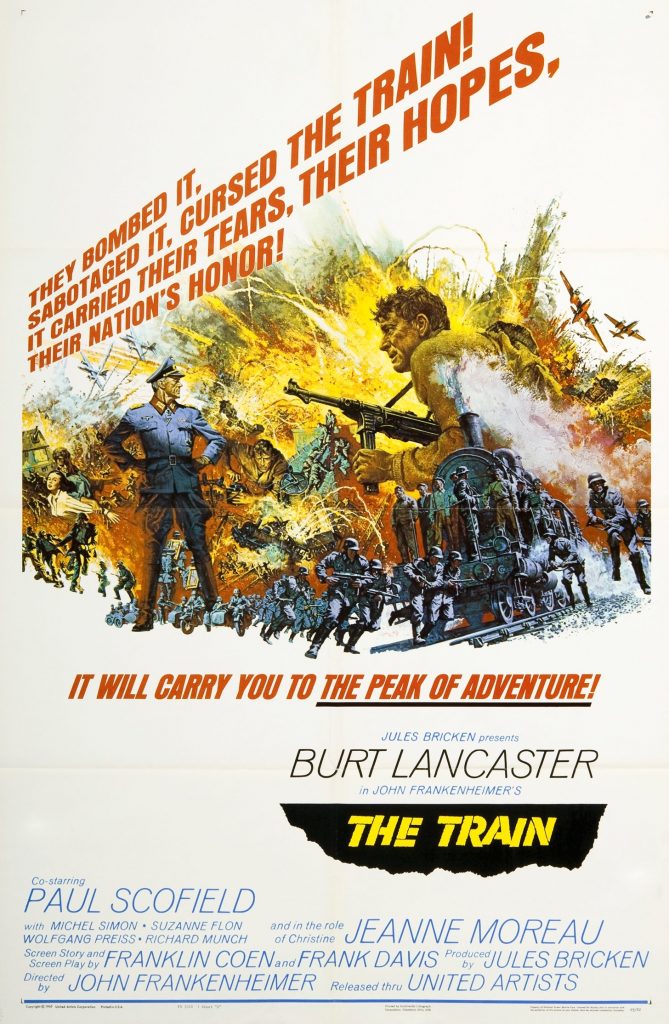
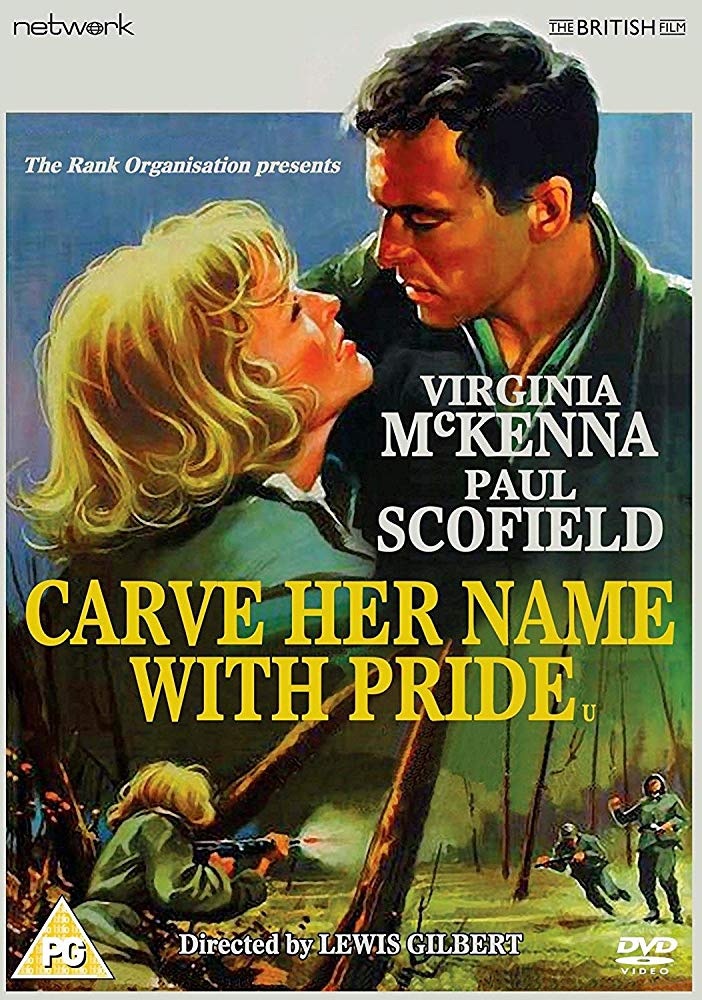

As Richard Eyre, the former artistic director of the National Theatre, who tempted Scofield back to the theatre to play John Gabriel Borkman at the NT in 1996, observed: “It is hard not to be Pollyannaish about Paul because he is such a manifestly good man, so humane and decent, and curiously void of ego – all the pride he has is channelled through the thing he does brilliantly. He has a very powerful personality, but it is not there as a parallel idiosyncrasy.”
He was born in Sussex to the wife of the headmaster of the Hurstpierpoint village school. He was 13 when he discovered acting at the Vardean school for boys in Brighton, where he was considered an academic no-hoper. He donned a blonde wig for his first role as Juliet in Romeo and Juliet and his natural talent and easy manner on stage won him further starring roles, including Rosalind in As You Like It.
There was never any doubt that he was bound for a career in the theatre and in 1939, aged 17, he left school to begin his training at Croydon repertory theatre. The war intervened, but Scofield was declared unfit for service due to a toe defect that prevented him from wearing military boots. With the Croydon school closed, Scofield moved to the London mask theatre and when two of the teachers, Eileen Thorndike (sister of the famous actor Sybil) and Herbert Scott, decided to evacuate the school to Devon and run it as a repertory theatre, Scofield went with them.
Here he began his training in earnest playing a succession of roles many of which would not have come his way so early but for the war. Although not yet 20, his performances got him noticed. A local critic was impressed, declaring: “One would hesitate to put any limits to what this actor is going to be able to do as he grows older.”
There were indeed no limits, except perhaps those he set on himself in the later part of his career, which meant that there were fewer stage appearances than one might have wished. In an interview Scofield himself once declared: “As an actor I don’t admit to any limitations. In rehearsal one comes up against apparently insuperable barriers, but if one can imaginatively get past them, overreach one’s natural reach, it is astonishing how elastic one can become. I’ve got to go not so far as I can, but as far as is needed. It’s up to somebody else to say if I’ve made a fool of myself.”
Scofield, more craggily noble in appearance than handsome, always looked more mature than he was (he once said that he had bags under his eyes by the age of 17) and even at this tender age his features had a timeless rather than matinee idol appearance that allowed him to play parts intended for actors much older.
But it was his voice that marked him out. It already had the sonority and “iron sweetness” that the film director Fred Zinnemann, who directed Scofield in his Oscar-winning performance as Thomas More in A Man For All Seasons (1966), called “a Rolls Royce being started up.” The critic JC Trewin once described Scofield’s voice as “sunlight on a broken column”.
This was not to say that a man who became one of the greatest Shakespearean actors of all time always found speaking verse easy. Later in life he was to admit that in his early career he had thought finding the sense of the verse was enough, and that it was only later he realised the crucial importance of rhythm.
Touring the country giving performances in munitions factories and other venues lead to him coming to rest briefly, in 1942, at Birmingham Rep, a theatre that was to play a major part in career. Here he was an exceptional Horatio in Hamlet and also met his future wife, the actor Joy Parker, who was cast as Ophelia. The two married in 1943, and it was his contentment with married and family life that soon followed that gave Scofield the grounding that ensured that he never became too full of himself or saw acting as too glamorous.
Acting, he once opined, was just “my job”. It was through family, not career, that Scofield defined himself. Once when asked how he would like to be remembered, he replied: “If you have a family, that is to be remembered.” After the war he returned to Birmingham Rep, one of the most vibrant theatres in the country under the guidance of the renowned Barry Jackson. Again, a huge number of roles followed quickly from Konstantin in The Seagull to a memorably bombastic Mr Toad in Toad of Toad Hall.
It was at Birmingham that Scofield also met a young 20-year-old director called Peter Brook. who was just starting out on his career. In subsequent years the two men were to be crucial to each other’s futures and reputations. Brook was the first modern director and in Scofield, whose still presence on stage eschewed the flamboyance of an earlier generation, he found the first great modern actor.
As Peter Hall was to observe, Scofield’s talent was “a sulphurous passion” and his acting offered the post-war British theatre “an entirely new note” that set him apart from the Oliviers, Gielguds and Richardsons who came before. Brook’s Hamlet (1955), which became known as the Moscow Hamlet because of its run in the USSR where Scofield was the first English-speaking actor to play the role since 1917, was truly a Hamlet for a generation; although Scofield had already played the role to considerable acclaim in 1948 for director Michael Benthall at Stratford. Harold Hobson declared that he had “never seen a Hamlet more shot through with the pale agony of irresolution.” (In 1990, Scofield came full circle and played the Ghost in Zefferelli’s film of Hamlet, starring Mel Gibson in the title role.)
Scofield had been enticed to Stratford with Jackson and Brook in 1946 and began a long association with the RSC. It was around this time that he also began working in radio, a medium that he adored and which was the perfect vehicle for his beautiful voice. Even in later life when he deserted the theatre for long periods he continued to appear in BBC radio plays and do many readings, attracted by both the quality and the anonymity that the medium offered. It was where he did some of his very greatest work.
Film never had the same appeal for him. Hollywood frequently beckoned from as early as the late 1940s and Darryl Zanuck on seeing a Scofield screen test declared: “That actor! The best I’ve seen since John Barrymore.” In the early years and with a young family, Scofield had no intention of decamping to Los Angeles and by the time he was an established star in the British theatre he had seen what Hollywood had done to some of his contemporaries including Richard Burton, a young actor with a classical talent that Scofield recognised when he admitted that he worried that “he’d get to King Lear before me”.
In the end it was no contest. Scofield first tackled the role aged just 40 at Stratford in 1962 in a Peter Brook production described by Kenneth Tynan as “a mighty philosophical farce” enacted “in a world without gods, with no possibility of hopeful resolution.” Of Scofield’s Lear he declared: “You will never see such another.” The production toured to ecstatic notices around the world, and a film version was made in 1969. Thirty-three years later Scofield returned to the role of Lear in a superb production for Radio Three.
In the end Scofield’s entire work on film amounted to less than 20 roles, and although it was clearly not his natural milieu – he told his biographer Garry O’Connor that he disliked the intrusiveness of the camera – his best performances were magnificent. He deservedly won the Oscar for Sir Thomas More in A Man For All Seasons, a role in which he had already triumphed onstage. He didn’t turn up to collect the Oscar and it was posted to him from Hollywood and got broken in transit which didn’t worry the actor in the slightest.
Twenty years later he got another Oscar nomination for his role as the upstanding Mark Van Doren in Robert Redford’s Quiz Show, a film that brought him to the attention of a younger generation who had never had the opportunity to see him on stage. Two years later he played Judge Danforth in Nicholas Hytner’s screen version of Arthur Miller’s The Crucible and was quite the best thing in it.
The stage, however, was his home for the 1950s to the 1970s, although as that decade progressed his appearances became more infrequent. His choices were always eclectic, ranging from the great classical roles to the musical Expresso Bongo (1958) and even a Jeffrey Archer play Exclusive in 1989.
Away from the classical repertoire his greatest successes were as the whiskey-soaked priest in a stage adaptation of Graham Greene’s The Power and the Glory, a part that he had to dig hard inside himself to find, and which Laurence Olivier, never one to be generous to other actors and potential rivals, declared: “the best performance I can remember seeing.”
Other notable roles were as Alan West in Christopher Hampton’s Savages (1973) and as the envious Salieri, in Peter Shaffer’s Amadeus directed by Peter Hall at the National Theatre in 1979. The latter was a triumph and Scofield could have gone with it to New York. Instead, he chose to stay at the National and play Othello, a role he had already made his own on radio in a 1972 production by John Tydeman who directed much of the actor’s best radio work.
It was from around the time of Othello at the National that Scofield’s stage appearances began to become more infrequent. Although some TV appearances, most particularly the title role in a serial adaptation of Martin Chuzzlewit on BBC TV in 1994, brought him to wid er attention, his stage appearances were few and far between.
When he did appear on stage he dazzled even in old age. In 1992 he played Captain Shotover in Trevor Nunn’s production of Heartbreak House in the West End, and he played John Gabriel Borkman, the dishonoured banker, in Ibsen’s play at the National in 1996. It was, declared the Guardian’s Michael Billington, “his finest performance since King Lear” adding that “Scofield’s greatness lies in the way he reveals the private turmoil behind the posturing facade.”
His final stage appearance was at the Almeida in 2001 when he read the love letters that Anton Chekhov wrote to the actor Olga Knipper, who later became his wife. It was full circle for Scofield who had met the then frail 86-year-old Knipper when he had played Hamlet in Moscow all those years previously.
It was theatre’s loss that Scofield performed so infrequently on stage during the last 30 years of his life, but perhaps he would not have been such a great actor if he had had more of a need to perform. For many actors, it is a flaw in their characters or some damage to their personality that makes them actors in the first place. This was patently not the case with Scofield who did not take his acting home with him and clearly found as much contentment with his family and pottering in his Sussex garden in Balcombe as he did playing the great roles.
This did not demean either, but only added to the sense of an actor whose still quiet centre was not a posture, but the real thing. He was made a CBE in 1956, rejected a knighthood but accepted being made a Companion of Honour in 2001. His greatest honour, however, was in giving a great deal of pleasure to the theatre-going public.
His wife, a son and a daughter survive him.
Brian Baxter writes: With uncharacteristic prescience, Bafta crowned Paul Scofield as best newcomer for his screen debut in That Lady. It was 1955, Scofield was 33 and his role as the elderly King Philip II of Spain had been expanded at the instigation of producer Darryl F Zanuck.
Three years later came Carve Her Name With Pride, playing the colleague who loves Violette Szabo, in a clichéd but decent biopic of the second world war heroine. Despite a preference for theatre, he worked steadily on screen and, excepting Michael Winner’s zoom-laden Scorpio (1973), showed a commitment beyond a desire to pay school fees.
Another war story initiated Scofield into the ways of big budget megalomania. He claimed that he was unsure what movie directors wanted of a classical actor, but John Frankenheimer, who had taken over The Train (1964) from Arthur Penn, saw him as the perfect foil to the athletic Burt Lancaster. Scofield played a fanatical German officer intent on stealing a train load of art treasures; Lancaster a French railway worker out to defeat the Nazi’s plan. It was a logistically ambitious movie and a contrast to Scofield’s next – most famous – film, in which he recreated his triumph as Sir Thomas More. In A Man For All Seasons (1966), his genius was in redefining More in a perfectly nuanced screen performance.
Resisting other offers, he played a cameo in Peter Brook’s anti Vietnam-war movie Tell Me Lies (1968), then took the intriguing role of the thwarted employer in Bartleby (1971). An adaptation of a Herman Melville story about a clerk who proves obstinate and unyielding, it provided a memorable two-hander for Scofield and John McEnery.
For Brook, he reprised his Aldwych theatre success in King Lear (1969). But the movie, shot in Denmark, proved glum and misguidedly busy, redeemed only by Scofield. Scorpio followed it, when, playing a Russian agent, he was reunited with Lancaster. Also in 1973, he co-starred with Katharine Hepburn in Edward Albee’s A Delicate Balance, directed with theatrical reverence by Tony Richardson.
Scofield was off the screen for more than a decade – returning with Summer Lightning (1984). On television he enjoyed greater success, playing Karenin in a sturdy Anna Karenina and Otto Frank in The Attic: The Hiding of Anne Frank (1988).
He was attracted to the ecological drama, When the Whales Came (1989), playing an elderly eccentric, then on familiar ground as the French king in Kenneth Branagh’s rousing Henry V. He stayed with Shakespeare for Franco Zeffirelli’s underrated Hamlet (1990), where Scofield’s mannered and intriguing voice suited The Ghost to perfection.
That spirited work ushered in a busy period, including Utz, from Bruce Chatwin’s novel and the prestige mini-series Martin Chuzzlewit. More interestingly he narrated the first of two docu-dramas by Patrick Keiller. In London (1994), he wryly commented on the state of the capital, as observed by a group exploring the city. Three years later Keiller made Robinson in Space, another jaundiced view of present-day Britain where Scofield’s voice, memorably described as rusty, provided another tellingly oblique commentary.
In contrast, he returned to the mainstream in Robert Redford’s factually based Quiz Show (1994), as the acerbic father to a fraudulent game-show contestant. It gained him an Oscar nomination as best supporting actor. Scofield was memorably cast as Judge Danforth in Nicholas Hytner’s treatment of The Crucible (1996), Arthur Miller’s play about the 17th-century Salem trials. The actor’s slightly imperious manner and timeless face suited period roles. Equally, his distinctive voice added lustre to the TV version of Animal Farm (1999), as Boxer.
· David Paul Scofield, actor, born January 21 1922; died March 19 2008
The above obituary from the “Guardian” can also be accessed online here.

Paul Greenwood was born in Stockton-on-Tees in 1943. His most famous role as as P/C. Penrose in the television series “Rosie” from 1977 until 1981. His films include “Captain Kronos – Vampire Hunters” in 1974 and “Frightmare”.

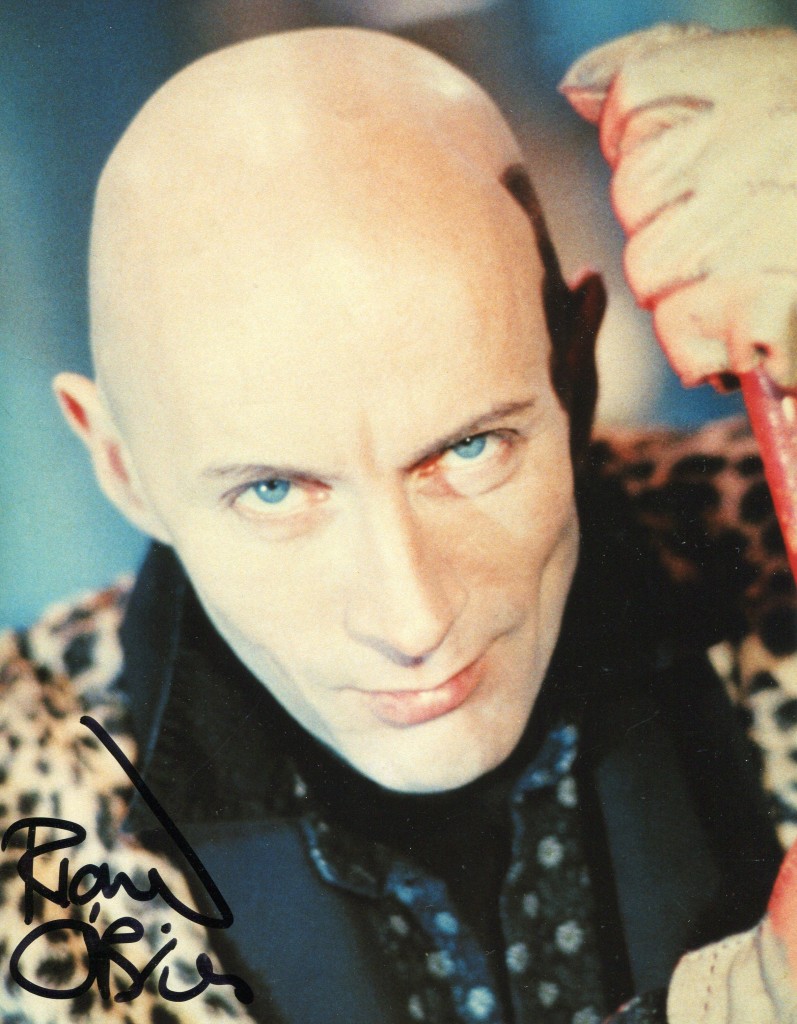
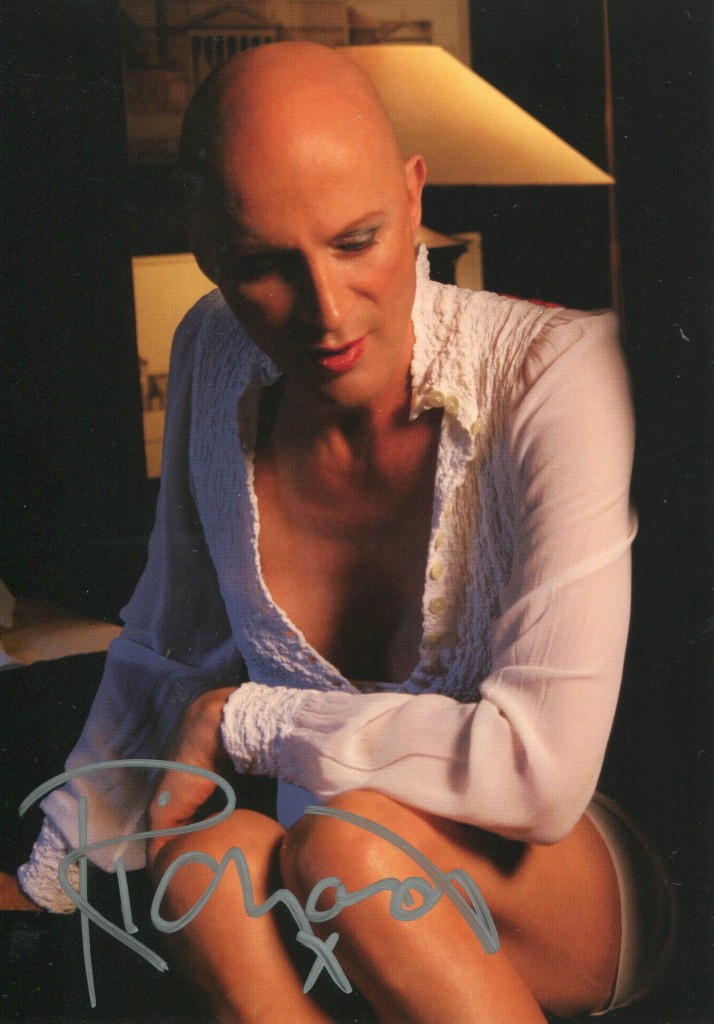
Richard O’Brien was born in 1942 in the U.K. When he was a child he emigrated with his family to New Zealand where his father purchased a sheep farm. As an adule he returned to England and was a stuntman on “Carry On Cowboy” in 1965. He acted in musicals on the London stage including “Hair”. His most famous work “The Rocky Horror Picture Show” in 1973. The show is as popular to-day as it was in the 70’s. His films include “Shock Treatment” and “Flash Gordon”.
IMDB entry:
Born in Cheltenham, England, Richard Smith’s family moved to Tauranga, New Zealand, in 1951 when his father, an accountant, decided to become a sheep farmer. Watching horror and science-fiction double features in nearby Hamilton, Smith added an interest in acting to his love of rock and roll. He moved back to England in 1964, tried singing, then became a movie stuntman and fringe theater actor. He changed his name to O’Brien (his beloved maternal grandmother’s name) one day while on the phone to British Actors Equity, to avoid confusion with another Richard Smith. He met director Jim Sharman in 1972, when Sharman cast him in the dual roles of Apostle and Leper for the London stage production (transferred from Sharman’s native Australia) of “Jesus Christ Superstar”. Working again with Sharman on a production of Sam Shepard‘s “The Unseen Hand”, O’Brien mentioned a new rock musical he’d been writing called “Rock Horror.” The play went into rehearsals as “They Came from Denton High,” and at Sharman’s suggestion, was retitled “The Rocky Horror Show” before opening in June 1973.
– IMDb Mini Biography By: Jim Whittaker
The above IMDB entry can also be accessed online here.

Danel Craig was born in 1968 in Chester in Cheshire. He had been building up a solid reliable portfolio of work when he became the sixth actor tp olay James Bond in “Casino Royale” in 2006. His early performances include the wonderful television drame “Our Friends from the North” in 1998. He also gave a terrific performance in “The Mother” in 2003 with Anne Reid. The next Bond film was “Quantum of Solace”. Recent work includes “Defiance” and “The Girl with the Dragon Tattoo”.
TCM overview:
Though he enjoyed a deal of anonymity early in his career, actor Daniel Craig was launched to international stardom in 2005 when he was named as Pierce Brosnan’s successor to play the role of James Bond. Following years of over-the-top action and reality stretching plotlines, Craig helped to bring the Bond franchise back to its grittier espionage roots with the critically hailed “Casino Royale” (2006). Prior to his portrayal of Bond, Craig appeared in films like “Lara Croft: Tomb Raider” (2001) and “Road to Perdition” (2002), before garnering attention as an unorthodox drug dealer in the British crime thriller “Layer Cake” (2004). From there, he earned more kudos for “Enduring Love” (2004) and struck fear as a single-minded Mossad assassin in “Munich” (2005). But it was “Casino Royale” that turned the rising star into an overnight sensation, though his second go-round as Bond, “Quantum of Solace” (2008), was not as well received. Meanwhile, Craig delivered strong performances outside the Bond universe in the World War II drama “Defiance” (2008) and the much-anticipated American adaptation of “The Girl with the Dragon Tattoo” (2011), while making celebrity news for his marriage to English actress Rachel Weisz in 2011. Regardless of his succession of the Bond role, Craig possessed the talent and presences that would have made him a star regardless.
Born on March 2, 1968 in Chester, England – also known as the Walled City – Craig grew up in nearby Liverpool, where his mother studied art at university and his stepfather, the painter Max Blond, plied his craft. At 16, he moved to London to train at the National Youth Theatre and later graduated from the Guildhall School of Music and Drama. In 1992, Craig made his film debut in the coming-of-age drama, “The Power of One,” wherein he played an Afrikaner soldier who beats and humiliates a white South African boxer (Stephen Dorff) trained by a black man (Morgan Freeman). Craig then appeared in “Genghis Cohn” (A&E, 1993), a satire about a Nazi SS officer (Robert Lindsay) confronted with the ghost of a Jewish comedian (Antony Sher) he killed in a concentration camp. After playing a commoner involved in a forbidden love with King Arthur’s daughter in the children’s fantasy, “A Kid in King Arthur’s Court” (1995), Craig gained fame in native England playing a hapless musician turned homeless person in the BBC’s “Our Friends in the North” (1996), an ambitious nine-part serial about the lives of four friends spanning thirty years.
In the PBS adaptation of Daniel Defoe’s “Moll Flanders” (1996), he played the enterprising bride’s one true love. He next appeared in the romantic thriller, “Obsession” (1997), wherein he was one of several characters whose divergent lives cross in Berlin. The period biopic, “Love is the Devil” (1998), offered him an opportunity to expand his range. Playing petty thief George Dyer, renowned painter Francis Bacon’s lover and artistic inspiration, Craig earned critical kudos in a film otherwise subjected to mixed reviews. A return to PBS in “The Ice House” (1998) found Craig playing an assistant investigator who doubts the Chief Inspector’s conclusion that a recently discovered corpse is the dead husband of a woman previously suspected in his disappearance. That same year, he appeared in “Elizabeth,” the widely acclaimed historical biopic starring an Oscar-snubbed Cate Blanchett as the Virgin Queen.
After landing major roles in smaller projects, including the World War I drama “The Trench” (1999) and the late 19th century drama “Love and Rage” (1999), Craig earned a British Independent Film Award for Best Actor for his portrayal of a schizophrenic man adjusting to the real world after his release from an institution in “Some Voices” (2000). He next appeared in a supporting role in the bland and uninspired romantic adventure, “I Dreamed of Africa” (2000), starring a well-meaning Kim Basinger. Craig then made the jump to larger Hollywood fare, appearing as old flame and fellow tomb raider Alex West in the live-action take on the popular video game, “Lara Croft: Tomb Raider” (2001), starring Angelina Jolie. In “Road to Perdition” (2002), he was the angry son of an Irish mobster (Paul Newman) who treats one of his hit men (Tom Hanks) like the son he never had. He next played poet Ted Hughes, husband to feminist icon Sylvia Plath (Gwyneth Paltrow), who committed suicide after he left their deteriorated marriage, in the uneven biopic, “Sylvia” (2003).
Craig caused a stir in the unsettling erotic drama, “The Mother” (2004), playing a man who beds a woman (Anne Reid) twice his age while sleeping with her daughter. The stark May-December romance earned rave reviews, but made little impression at the box office. After a stint as a university professor stalked by another man (Rhys Ifans) in the Hitchcockian “Enduring Love” (2004), he was an inmate at an institute for the criminally insane in the derivative thriller, “The Jacket” (2005). Meanwhile, the Bond rumors began to swirl amidst the release of “Layer Cake” (2005), a crime comedy from Matthew Vaughn, producer of “Snatch” (2001) and “Lock, Stock and Two Smoking Barrels” (1999). Craig played a cocaine dealer seeking early retirement who is forced by a crime boss to find the missing daughter of an old pal (Michael Gambon). Meanwhile, Craig was cast by Steven Spielberg to co-star in “Munich” (2005), the true story about the massacre of Israeli athletes by Palestinian terrorists at the 1972 Olympics and the secret Mossad mission to exact revenge. Craig delivered a razor-edged performance as the one member of the team who whole-heartedly embraces the righteousness of their mission.
Just prior to the release of “Munich” and after months of speculation, Craig was officially revealed as the next James Bond in October 2005, becoming only the second British actor to play the role, though he held the distinction of being the first blond. Initially, Craig was greeted with concern – and in some corners, outright scorn – from critics, who felt his blond hair and relatively short stature at under six-feet tall, went against author Ian Fleming’s original vision of the character. Adding injury to insult, Craig reportedly lost two teeth while filming a fight scene, but it turned out that he had simply lost a crown. Nonetheless, the media hounds enjoyed their continued snipping at the actor’s heels. When “Casino Royal” (2006) was released, however, critics suddenly changed their tune, stating that the film was one of the best in years and that Craig rivaled Sean Connery with his complex and in-depth take on the Bond character. Meanwhile, Craig starred opposite Nicole Kidman in “The Invasion” (2007), voiced Lord Asriel in “The Golden Compass” (2007), and played a hedonistic British actor nearing the end of his career in “Flashbacks of a Fool” (2008).
Of course Craig returned to the James Bond role for the highly-anticipated “Quantum of Solace” (2008), but fans were roundly disappointed with Craig’s second go-round because of a weak storyline and over-reliance on a flash-cut editing. Still, the actor was generally praised for his depiction of Britain’s most famous spy. Craig went on to star in director Ed Zwick’s World War II drama, “Defiance” (2008), in which he played a simple farmer who, along with his brother (Liev Schreiber), turns a group of Jewish refugees into a crack team of freedom fighters against the Nazi regime. He next starred in the high-profile “Cowboys & Aliens” (2011), a sci-fi/Western hybrid set in 1873 in which he played an unwelcome stranger in the fear-gripped town of Absolution who wears a mysterious wristband that helps in the fight against an alien invasion. While plans for the 23rd Bond movie were put on hold due to the financial struggles of MGM, Craig earned considerable attention for his starring performance opposite a completely transformed Rooney Mara in the U.S. remake of “The Girl with the Dragon Tattoo” (2011). Craig played crusading journalist, Mikael Blomkvist, who investigates the 40-year-old disappearance of a woman from a wealthy family with an emotionally disturbed computer hacker (Mara). Once MGM put its house in order, Craig returned to play Bond in “Skyfall” (2012), in which 007 is presumed dead, only to be used by M (Judi Dench) to track down a notorious criminal (Javier Bardem) who has a crucial personal connection to both.
The above TCM overview can also be accessed online here.
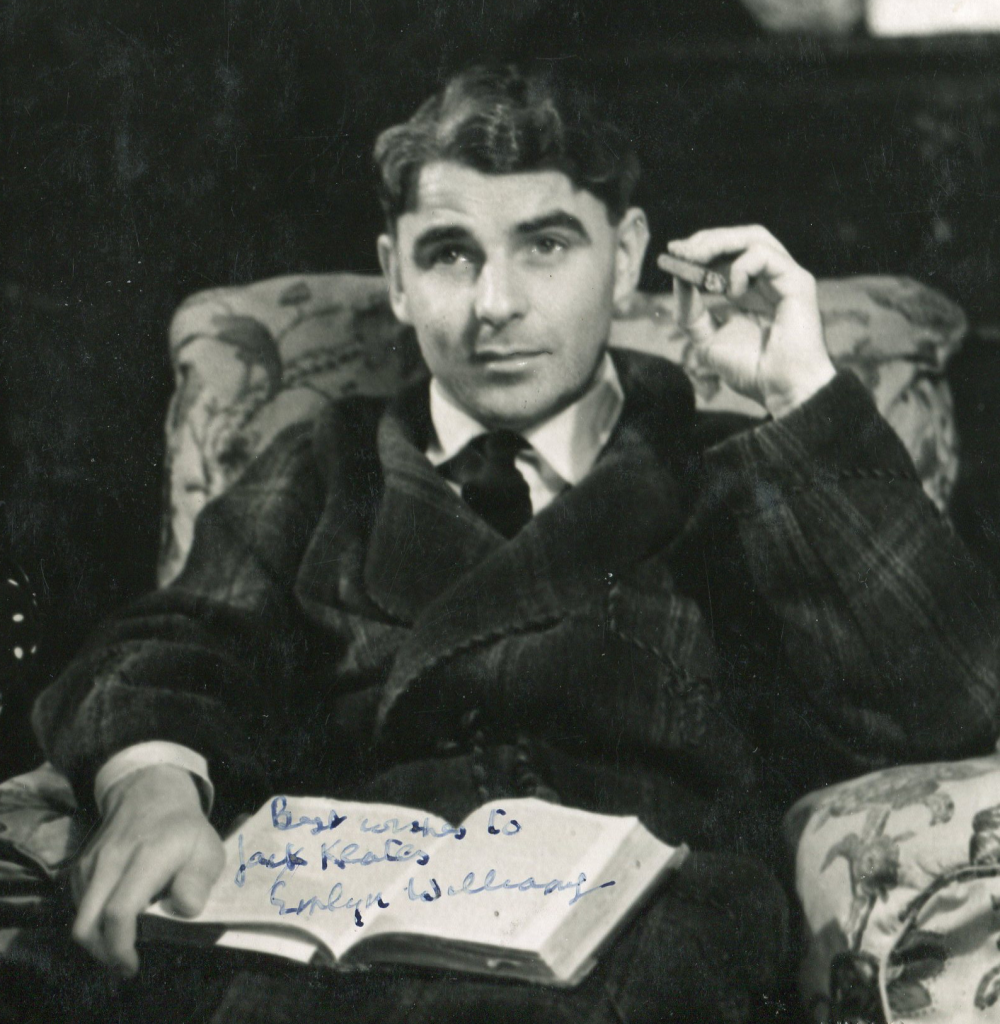
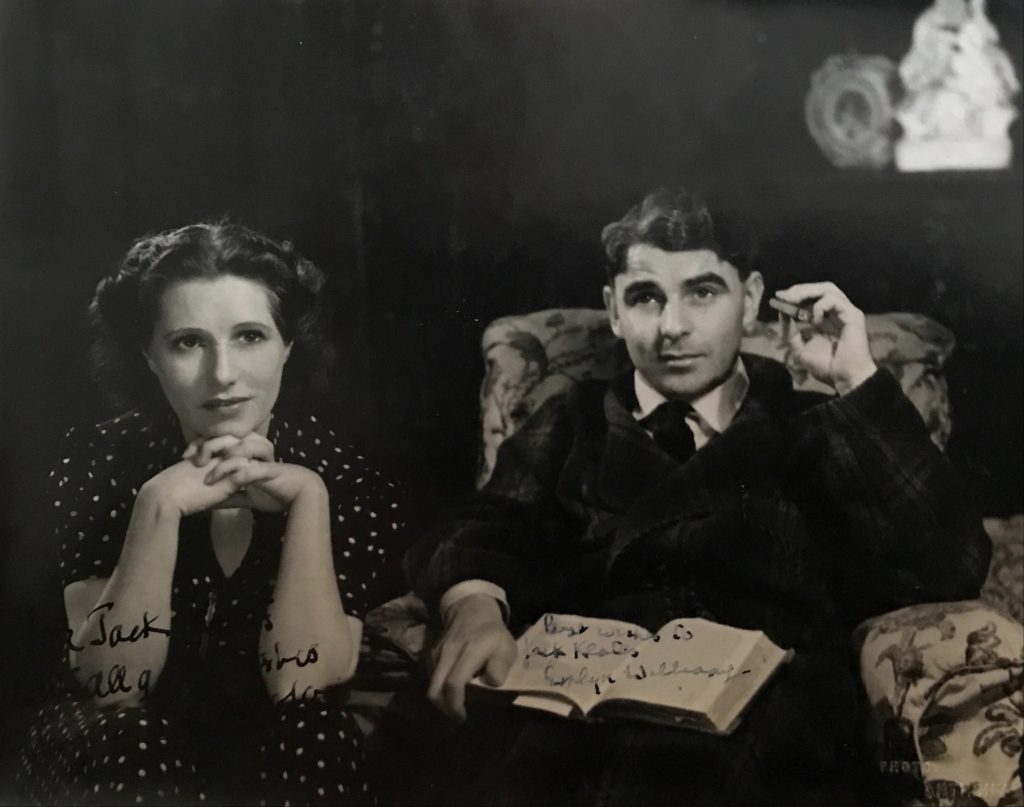
Actor and playwright Emlyn Williams was born in 1905 in Wales. He began his stage career in 1927. In 1935 he had a huge hit starring in his own play “Night Must Fall”. This was made into a film in Hollywood with Robert Montgomery in 1937. William’s other great play was “The Corn Is Green” which was made into a film starring Bette Davis in 1945. On film he tended to play cads and bounders such as in “The Stars Look Down” with Margaret Lockwood in 1938 and “Hatter’s Castle” with Deborah Kerr in 1942. In 1970 he gave a splendid performance in “The Walking Stick” with David Hemmings and Samantha Eggar. He died in 1987 at the age of 81.
IMDB entry:
Born George Emlyn Williams in Pen-y-Ffordd, Mostyn, Flintshire in northeast Wales on November 1905, he lived in a rural village in which Welsh was spoken until he was 12-years-old, when his family moved to an English-speaking town, Connah’s Quay. It changed the course of his life as it was there that the teacher, Sarah Grace Cooke, recognizing his literary talent, encouraged him and helped him win a scholarship to Oxford, where he attended the college of Christ Church. She is immortalized in the character of “Miss Moffat” in his play, “The Corn is Green”.
Education enabled him to escape the life at hard labor that was the lot of his people. He attended Christ Church, Oxford and also studied in Geneva, Switzerland. He joined a repertory theater and made his acting debut in “And So To Bed” in London in November, 1927. He eventually became an accomplished stage and screen actor, but it as a playwright that he had his greatest success, eventually writing a score of plays.
He had his first theatrical success as a writer with “A Murder Has Been Arranged”. The success of his 1935 play “Night Must Fall”, which opened at London’s Duchess Theatre, led to its being transferred to New York the following year. Williams had made his Broadway debut in 1927, as a 21-year-old in “And So To Bed”, a comedy based on the diaries of Samuel Pepys (the title comes from how Pepys ended his diary entries; Pepys was the subject of a 1983 TV movie Pepys and So to Bed (1983)), and had appeared again on Broadway in Edgar Wallace‘s “Criminal at Large” in 1932. Opening on September 23, 1936 at the Ethel Barrymore Theatre, the play ran for 64 performances. It was made into a movie twice, in 1937 with Robert Montgomery in the lead role of the young psychopath, and later, in 1964, with Albert Finney taking over the role.
Walking around for two years with the head of a woman in a hat box, Williams recalled in 1965, likely was the reason that Sir Alexander Korda hired him for the part of “Caligula” in the 1937 version of Robert Graves‘s I, Claudius (1937), famous as “The Epic That Never Was”, in which Charles Laughton was cast as the fourth Roman Emperor of the Julian-Claudian dynasty. The production was canceled after leading lady Merle Oberon got into a car accident.
“The Corn Is Green” was a Broadway triumph for the great Ethel Barrymore in 1940 and brought Bette Davis one of her 10 Oscar nominations in the 1945 film adaptation.Katharine Hepburn later played the part of “Miss Moffat” in the 1979 TV movie directed by George Cukor, for which she won an Emmy Award nomination as Outstanding Lead Actress in a Limited Series or a Special.
Williams’ plays “Yesterday’s Magic”, “The Morning Star” and “Someone Waiting” were also performed on Broadway, and he had a success on the Great White Way as an actor, himself, in a solo performance as Charles Dickens, which he revived twice. He was nominated for a Tony Award for Best Actor in a Play for “A Boy Growing Up” (1958), an adaptation of a work by fellow Welshman Dylan Thomas. The tribal Williams also nurtured the young Welshman Richard Burton, whom he directed in his first lead film role in Women of Dolwyn (1949). (Burton’s professional stage debut had been in Williams’ play “Druid’s Rest”, and Emyln Williams’ son, Brook Williams, became one of Burton’s life-long friends). Williams was the godfather to his Burton’s daughter, Kate Burton, who is also an actress. In addition to directing and acting in film, Emlyn Williams famously collaborated with the great director Alfred Hitchcock. Williams acted in and wrote additional dialog for both the original The Man Who Knew Too Much (1934) (1934) andJamaica Inn (1939).
Emlyn Williams wrote two memoirs, “George, An Early Autobiography” (1961), and “Emlyn: An Early Autography, 1927-1935” (1974), as well as a 1967 non-fiction account of the Moors Murders entitled “Beyond Belief”. His 1980 novel “Headlong” was adapted byDavid S. Ward into the movie King Ralph (1991). He was appointed a Commander of the Order of the British Empire in 1962.
When he died in 1987, Emlyn Williams had written or co-written 20 screenplays in addition to his 20 plays. As an actor, he had appeared in 41 films and teleplays, plus made numerous appearances on stage.
– IMDb Mini Biography By: Jon C. Hopwood
The above IMDB entry can also be accessed online here.
Anyone who knows me are aware that I am a bit of a movie buff. Over the past few years I have been collecting signed photographs of my favourite actors. Since I like movies so much there are many actors whose work I like.